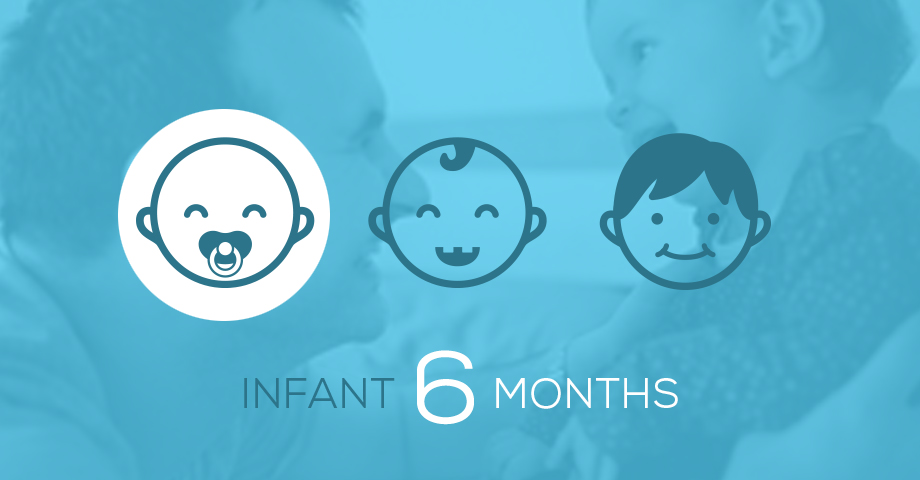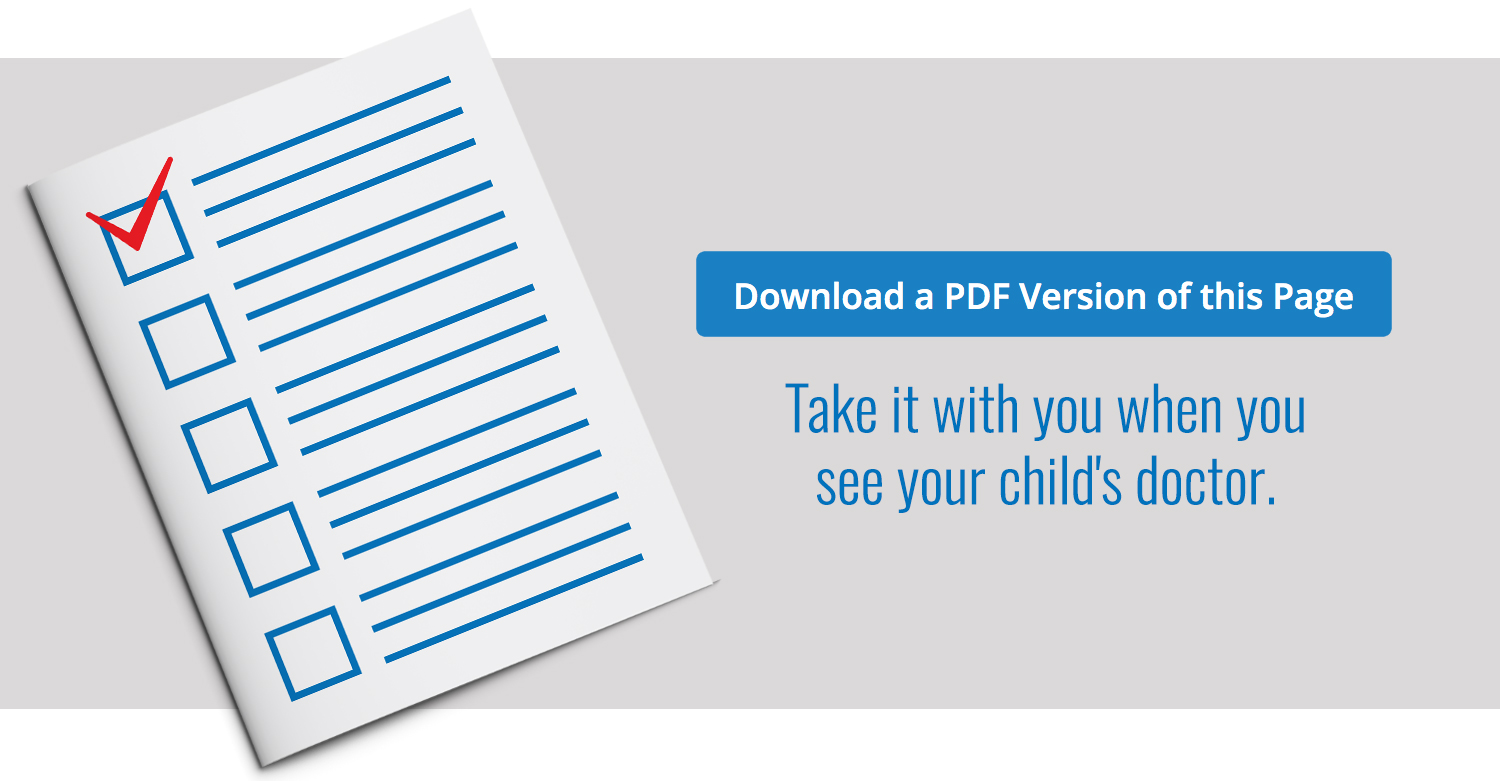
How your child plays, learns, speaks, acts and moves offers important clues about your child’s development. Developmental milestones are the things most children (75% or more) can do by a certain age.
Check the milestones your child has reached by 6 months, and talk with your child’s doctor at every visit about the milestones your child has reached and what to expect next.

What Most Babies Do at This Age:
Social / Emotional
- Knows familiar people
- Likes to look at himself in a mirror
- Laughs
Language / Communication
- Takes turns making sounds with you
- Blows “raspberries” (sticks tongue out and blows)
- Makes squealing noises
Cognitive (learning, thinking, problem-solving)
- Puts things in her mouth to explore them
- Reaches to grab a toy he wants
- Closes lips to show she doesn’t want more food
Movement / Physical Development
- Rolls from tummy to back
- Pushes up with straight arms when on tummy
- Leans on hands to support himself when sitting
6 Month Visit: Everything is New
The Sparks videos are designed to deliver important information on behavior, development, nutrition, safety, and common medical questions. To get more videos like this, text SPARKS to 1-844-650-1210 or visit www.sparksvideoseries.com to learn more.
The Sparks Parent Video Series was created by The Mount Sinai Parenting Center in collaboration with Zero to Three and the Brazelton Touchpoints Center with the help of experts across the country.
Other Important Things to Share with the Doctor |
||
|
||
Concerned about your child’s development?
You know your child best. Don’t wait. If your child is not meeting one or more milestones, has lost skills he or she once had, or you have other concerns, act early. Talk with your child’s doctor, share your concerns, and ask about developmental screening.
If you or the doctor are still concerned:
- Ask for a referral to a specialist who can evaluate your child more; and
- Call your state or territory’s early intervention program to find out if your child can get services to help. Learn more and find the number at cdc.gov/FindEI.
For more on how to help your child, visit cdc.gov/Concerned.
Help Your Baby Learn and Grow.
Content provided by the Centers for Disease Control and Prevention’s “Learn the Signs. Act Early.” material and are not a substitute for a standardized, validated developmental screening tool.



